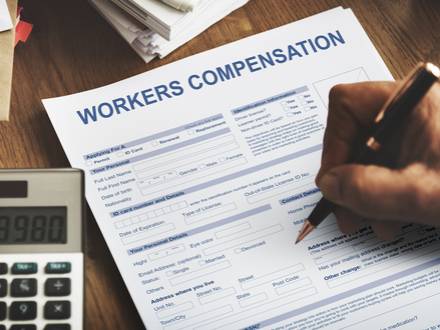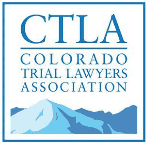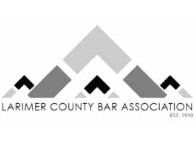Request a Free Consultation | No Upfront FeesSe Habla Español
970-225-2190 |
1-800-664-3151
What Injured Workers Need to Know About Colorado Workers’ Compensation
 By Attorney Brett Busch
By Attorney Brett Busch
When a work injury disrupts your life, knowing your rights under Colorado’s workers’ compensation system can make all the difference in pursuing a successful case. An upcoming continuing legal education (CLE) session hosted by Attorney Brett Busch of Hoggatt Law Office, P.C. offers a thorough look at how Colorado law handles workers’ comp claims, from what qualifies as a work-related injury to the benefits available and the timelines that must be followed.
If you were injured at work, this guide covers the major points every worker should know. For further help with your case, contact our Larimer County workers’ comp attorneys.
What Counts as a Work-Related Injury?
Not every injury that happens on or near the job qualifies for workers’ compensation benefits. In Colorado, workers’ compensation law requires that an injury occur in the course and scope of employment. This means the injury must happen while performing job-related tasks or activities that directly benefit your employer.
For example, slipping on a wet floor while making a delivery, falling off a ladder while performing assigned maintenance, or suffering a back injury while lifting supplies might all be considered work-related. However, injuries that occur during unpaid breaks, during your commute, or while performing personal errands may fall outside the law’s protection.
A key issue in many claims is whether the person was legally classified as an employee or an independent contractor. Independent contractors are not typically covered under Colorado’s workers’ comp system, but some employers do misclassify workers to avoid paying premiums. If you are unsure how you were classified, a legal review can help clarify your rights.
What Benefits Are Available in a Colorado Workers’ Compensation Claim?
When an injury qualifies as work-related, Colorado law provides several categories of benefits. These are designed to ensure that workers receive the care they need and some compensation for lost income while recovering.
Medical Benefits
Injured workers are entitled to receive treatment through a designated provider selected by the employer or insurer. Medical benefits can include:
-
Emergency care and surgery
-
Physical therapy
-
Diagnostic tests (MRI, X-rays)
-
Referrals to specialists
-
Ongoing treatment or "maintenance care"
-
Independent medical examinations (IMEs), often used to resolve disputes over diagnosis or treatment
The rules around pre-existing conditions are also important. Workers may still be eligible for benefits even if an injury aggravated or worsened a previous condition.
Indemnity Benefits (Lost Wage Compensation)
When your injury prevents you from working, you may qualify for indemnity benefits to partially replace lost wages. These include temporary total or partial disability, and permanent total or partial disability.
Colorado also provides compensation for permanent disfigurement, such as scarring or loss of use of a body part. Additionally, workers may be reimbursed for mileage and travel costs related to medical care, such as trips to physical therapy or specialist appointments.
What Is the Process for Filing a Workers’ Compensation Claim?
The claims process begins with reporting an injury right away. Colorado requires injured workers to notify their employer in writing within 10 days of the injury. The employer should then file a First Report of Injury with the insurance company.
Once the claim is initiated, the insurer will issue a General Admission of Liability if they accept responsibility. If they deny the claim, the worker can request a hearing before an administrative law judge. At the end of the process, a Final Admission of Liability is issued to resolve the claim, though workers may dispute this document if they believe they are owed additional benefits.
Claims must follow strict timelines. Colorado workers generally have two years to file a claim from the date of injury. However, waiting to report or initiate a claim can jeopardize your right to benefits, especially if deadlines are missed or medical evidence is incomplete.
Get Help from a Fort Collins, CO Workers’ Compensation Attorney
The workers’ compensation system in Colorado is meant to protect injured employees, but delays, denials, and misunderstandings about the law often prevent workers from getting the benefits they have earned. Whether your injury was recent, your claim is under dispute, or you are unsure how your employment status affects your eligibility, legal guidance can help.
At Hoggatt Law Office, P.C., we offer free consultations and will explain your rights, walk you through your next steps, and advocate for the full compensation the law allows. Call 970-225-2190 today to speak with a Larimer County personal injury attorney who really understands Colorado workers’ comp law.

970-225-2190 | 1-800-664-3151
1403 W. 29th St.,
Loveland, Colorado 80538
Greeley:
3835 W. 10th Street, Unit 100,
Greeley, Colorado 80634|
970-460-2220
Longmont:
2204 18th Ave, Suite 123,
Longmont, Colorado 80501|
720-575-0509
Boulder:
4450 Arapahoe Avenue, Suite 100,
Boulder, Colorado 80303|
303-997-2018
Ft. Collins:
123 North College Ave., Suite 160,
Fort Collins, CO 80524|
970-225-2190
Cheyenne:
109 E. 17th St., Suite #6148,
Cheyenne, WY 82001|
307-227-4051 (By Appointment Only)















